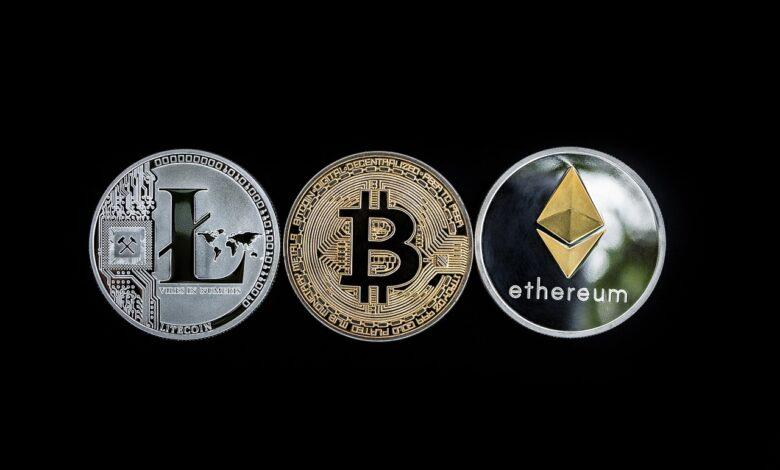Unlocking Tomorrow – Navigating Crypto Exchange Evolution

As we stand on the precipice of a new era in finance, the landscape of cryptocurrency exchanges is evolving at an unprecedented pace. The next generation of digital asset platforms presents a myriad of opportunities and challenges for investors seeking to navigate this intricate web of trading options. With the rapid advancements in technology and the increasing adoption of cryptocurrencies, understanding the dynamics of these exchanges is not merely advantageous–it is essential.
The evolution of crypto trading platforms has transformed the way we perceive value and engage with digital assets. Each innovation brings with it a fresh set of considerations that investors must carefully evaluate. Gone are the days when exchanges were mere conduits for transactions; today, they are sophisticated ecosystems that demand our attention and understanding. From decentralized exchanges that prioritize user autonomy to centralized platforms offering unparalleled liquidity, the choices available reflect a broader shift towards a more inclusive financial system.
For investors, grasping the intricacies of this changing landscape is paramount. Insightful analysis can illuminate key trends that will shape the future of cryptocurrency exchanges. As we delve deeper into this subject, we will explore not only the fundamental characteristics of these platforms but also the critical information necessary for making informed investment decisions. The journey ahead promises to be as exhilarating as it is complex, and it invites us to engage with this burgeoning field with both caution and curiosity.
In this exploration, we will uncover essential insights into what investors should know about the evolution of cryptocurrency exchanges. By focusing on the key factors influencing their development, we aim to equip you with the knowledge needed to navigate the exciting yet unpredictable world of digital asset trading. Join us as we embark on this intellectual odyssey–one that holds the potential to redefine our understanding of wealth and investment in the years to come.
The Future of Cryptocurrency Exchanges: What Investors Should Know
As we navigate the ever-evolving landscape of cryptocurrency exchanges, it is essential for investors to grasp the underlying trends that define this digital asset trading ecosystem. The proliferation of various platforms has transformed the way individuals engage with cryptocurrencies, marking a significant evolution in the financial landscape. Today’s exchanges not only facilitate transactions but also serve as vital hubs for market information, liquidity, and investor participation. Understanding these dynamics will prove crucial for informed investment decisions.
The next generation of cryptocurrency exchanges is characterized by increasing sophistication and innovation. Traditional models are being challenged by decentralized exchanges (DEXs) that offer enhanced security and privacy. These platforms leverage blockchain technology to eliminate intermediaries, allowing users to trade directly with one another. This shift toward decentralization presents key considerations for investors, as it introduces both opportunities and risks that differ markedly from those associated with centralized exchanges.
Investors must also pay close attention to the regulatory landscape surrounding cryptocurrency trading. Governments around the world are grappling with how to manage digital assets, leading to varying degrees of acceptance and oversight. As regulations evolve, they will inevitably shape the future of cryptocurrency exchanges. For instance, compliance requirements may affect operational costs and user accessibility on certain platforms, thus influencing investor sentiment and market behavior.
Moreover, the integration of advanced technologies such as artificial intelligence and machine learning is poised to redefine the trading experience on these platforms. Enhanced algorithms can improve market predictions and risk assessments, providing investors with critical insights that were previously unattainable. The ability to harness big data will empower traders to make more informed decisions, ultimately influencing their strategies within the competitive digital asset landscape.
Security remains a paramount concern in the context of cryptocurrency exchanges. As seen in recent high-profile breaches, vulnerabilities can lead to significant losses for investors. Thus, key considerations should include evaluating a platform’s security protocols, such as two-factor authentication and cold storage solutions. A thorough understanding of how an exchange protects its users’ assets will be instrumental in mitigating risks associated with digital trading.
In conclusion, the future of cryptocurrency exchanges is marked by rapid change and complexity. Investors must arm themselves with essential information about emerging trends, regulatory developments, technological advancements, and security measures. By doing so, they can navigate this dynamic landscape with greater confidence, making informed choices that align with their investment goals in the ever-expanding world of digital assets.
The Future of Cryptocurrency Exchanges: What Investors Should Know
The cryptocurrency exchange landscape is undergoing a profound transformation, shaped by a convergence of technological advancements and regulatory developments. As investors navigate this evolving terrain, it is essential to grasp the trends that are redefining trading platforms. The rise of decentralized exchanges (DEXs) has introduced a new paradigm, allowing users to retain control of their assets while providing liquidity through smart contracts. This shift not only enhances security but also democratizes access to trading opportunities, setting the stage for a more inclusive financial ecosystem.
Another pivotal trend shaping crypto exchanges is the increasing integration of artificial intelligence and machine learning technologies. These innovations are enabling exchanges to offer more robust trading tools and analytics, providing investors with critical insights into market behaviors and trends. By harnessing vast amounts of data, AI-driven platforms can enhance user experience through personalized recommendations and improved risk management strategies. As investors seek more sophisticated ways to navigate volatility, such technologies will become essential components of successful trading platforms.
Regulatory clarity is another key consideration in the future of cryptocurrency exchanges. Increasing scrutiny from governments worldwide has led to a push for more transparent and compliant operating frameworks. Investors must remain informed about the regulatory landscape, as compliance can significantly affect the viability and credibility of an exchange. Platforms that proactively adapt to evolving regulations will likely attract a larger user base, thereby solidifying their position in the market.
The evolution of crypto trading platforms is also marked by the emergence of hybrid models that blend features of centralized and decentralized exchanges. These hybrid platforms aim to capture the best aspects of both worlds–offering the liquidity and ease-of-use typically found in centralized systems while incorporating the security and privacy benefits associated with decentralized models. For investors, understanding these hybrids will be crucial in assessing which platforms align best with their trading strategies and risk tolerance.
As we look toward the next generation of digital asset exchanges, several key considerations arise for investors. First, the user interface and overall experience of trading platforms are becoming increasingly important. A seamless experience can significantly influence investor decisions; therefore, platforms that prioritize usability will likely gain a competitive edge. Additionally, security measures such as multi-signature wallets and insurance policies against breaches are vital factors that should inform investment choices.
In conclusion, navigating the future of cryptocurrency exchanges requires a nuanced understanding of emerging trends and their implications for investors. By staying informed about technological advancements, regulatory developments, and platform innovations, investors can make educated decisions that align with their financial goals. The landscape is rapidly evolving, but those who approach it with curiosity and critical thinking will find opportunities in this dynamic environment.
The Future of Cryptocurrency Exchanges: What Investors Should Know
As we stand on the precipice of a new era in the cryptocurrency landscape, regulatory changes loom large on the horizon. The increasing scrutiny from governments around the world has prompted exchanges to adapt or risk obsolescence. Investors must be acutely aware of how these regulatory shifts can impact the trading environment for digital assets. For instance, the recent moves by the SEC in the United States to classify certain tokens as securities have significant implications for exchanges operating within that jurisdiction. Understanding these changes is crucial for investors who seek to navigate this complex and evolving field.
The next generation of cryptocurrency exchanges is likely to be characterized by enhanced transparency and security measures, which will foster greater confidence among investors. Innovations such as decentralized exchanges (DEXs) are emerging as viable alternatives to traditional centralized platforms, offering users direct control over their assets and reducing reliance on third-party custodians. However, investors must consider the trade-offs associated with these platforms, including liquidity challenges and varying user experiences. By staying informed about these developments, investors can make educated decisions about where to allocate their resources.
In assessing the cryptocurrency exchange landscape, investors should equip themselves with essential information regarding the operational practices and technological innovations of various platforms. Factors such as trading fees, user interfaces, and customer support capabilities can greatly influence an investor’s overall experience. Moreover, understanding the underlying technology–such as blockchain infrastructure and smart contracts–can provide valuable insights into the potential longevity and reliability of an exchange. As competition intensifies among exchanges, those that prioritize user experience and regulatory compliance will likely emerge as leaders in this dynamic market.
The evolution of crypto trading platforms is not merely a matter of technological advancement; it also involves a deeper understanding of market psychology and investor behavior. Insights into how different demographics engage with digital assets can help platforms tailor their offerings and enhance user engagement. For example, younger investors may gravitate toward gamified trading experiences, while institutional players might prioritize robust analytical tools and regulatory adherence. Ultimately, as the landscape continues to mature, investors must remain vigilant and adaptable, recognizing that success in this arena requires not only knowledge of cryptocurrencies but also an awareness of broader trends shaping the future of asset exchanges.
The Future of Cryptocurrency Exchanges: What Investors Should Know
In the rapidly evolving landscape of cryptocurrency exchanges, investors are presented with a plethora of choices that can be broadly categorized into centralized and decentralized platforms. Centralized exchanges (CEXs), such as Binance and Coinbase, act as intermediaries between buyers and sellers, often providing a user-friendly interface along with robust liquidity and trading features. However, they also introduce considerations regarding security and regulatory compliance. On the other hand, decentralized exchanges (DEXs) like Uniswap and SushiSwap facilitate peer-to-peer trading without a central authority, offering greater privacy and control over assets but potentially lacking in liquidity and ease of use. Understanding these fundamental differences is crucial for investors navigating the contemporary digital asset exchange landscape.
The cryptocurrency exchange landscape is constantly shifting, influenced by technological advancements, regulatory developments, and market dynamics. As traditional financial institutions embrace digital currencies, the lines between conventional finance and crypto trading continue to blur. For instance, the emergence of hybrid exchanges seeks to combine the best of both worlds–offering users the security of decentralization while maintaining the efficiency of centralized systems. Investors must remain vigilant in monitoring these trends, as they hold significant implications for market accessibility and investor protection.
As we look towards the next generation of digital asset exchanges, several key considerations come to the forefront. Innovations such as automated market making (AMM) algorithms, liquidity pools, and layer-2 scaling solutions are redefining how trading occurs in the crypto space. These advancements not only enhance transaction speeds but also reduce costs, making it more feasible for retail investors to participate in the market. Furthermore, increasing interoperability between different blockchain networks promises to facilitate seamless cross-chain trading experiences. Investors should evaluate these developments carefully, assessing how they align with their investment strategies and risk tolerances.
The evolution of crypto trading platforms has been marked by a growing emphasis on user experience and educational resources for investors. Many exchanges now offer comprehensive guides, tutorials, and analytical tools aimed at empowering users to make informed decisions. This shift towards transparency and education is vital in a market often criticized for its volatility and complexity. Investors should leverage these resources to deepen their understanding of market mechanics, asset valuation, and risk management strategies–essential components for navigating this intricate landscape.
Moreover, security remains a paramount concern for users engaging with cryptocurrency exchanges. While centralized platforms often invest heavily in cybersecurity measures to protect user funds, they are still susceptible to hacks and regulatory scrutiny. Decentralized platforms mitigate some of these risks by enabling users to maintain control over their private keys; however, they introduce challenges related to smart contract vulnerabilities. Investors must weigh these factors prudently when choosing where to engage in trading activities.
In conclusion, the future of cryptocurrency exchanges is poised for significant transformation as new technologies emerge and market participants evolve alongside them. Investors must stay informed about the key considerations that define the landscape–from understanding the nuances between centralized and decentralized platforms to recognizing the importance of security and education in their trading endeavors. By doing so, they can position themselves strategically within this dynamic ecosystem, ultimately enhancing their prospects for success in the ever-fluctuating world of digital assets.





